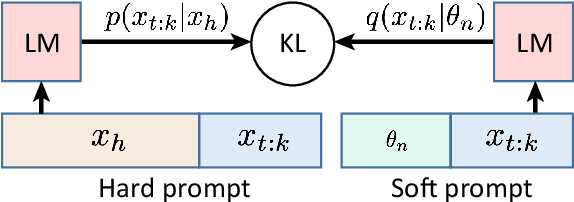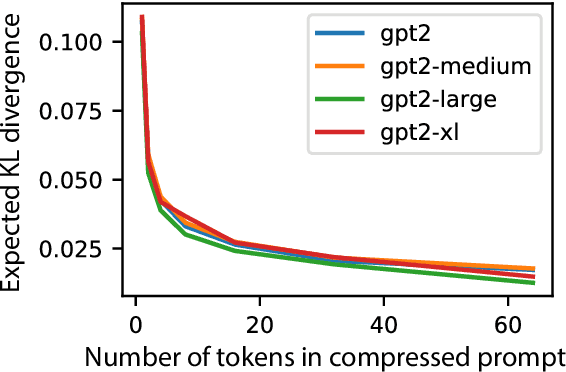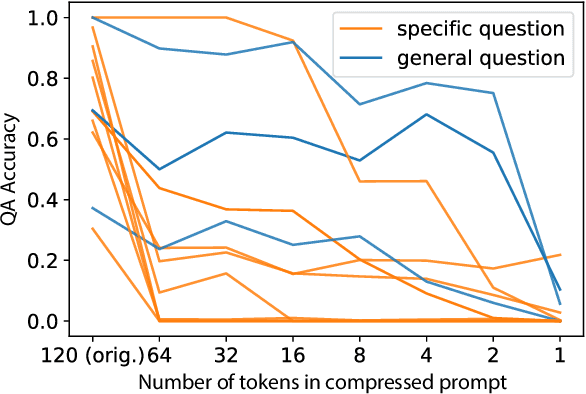Prompt Compression and Contrastive Conditioning for Controllability and Toxicity Reduction in Language Models
Paper and Code
Oct 06, 2022



We explore the idea of compressing the prompts used to condition language models, and show that compressed prompts can retain a substantive amount of information about the original prompt. For severely compressed prompts, while fine-grained information is lost, abstract information and general sentiments can be retained with surprisingly few parameters, which can be useful in the context of decode-time algorithms for controllability and toxicity reduction. We explore contrastive conditioning to steer language model generation towards desirable text and away from undesirable text, and find that some complex prompts can be effectively compressed into a single token to guide generation. We also show that compressed prompts are largely compositional, and can be constructed such that they can be used to control independent aspects of generated text.
 Add to Chrome
Add to Chrome Add to Firefox
Add to Firefox Add to Edge
Add to Edge